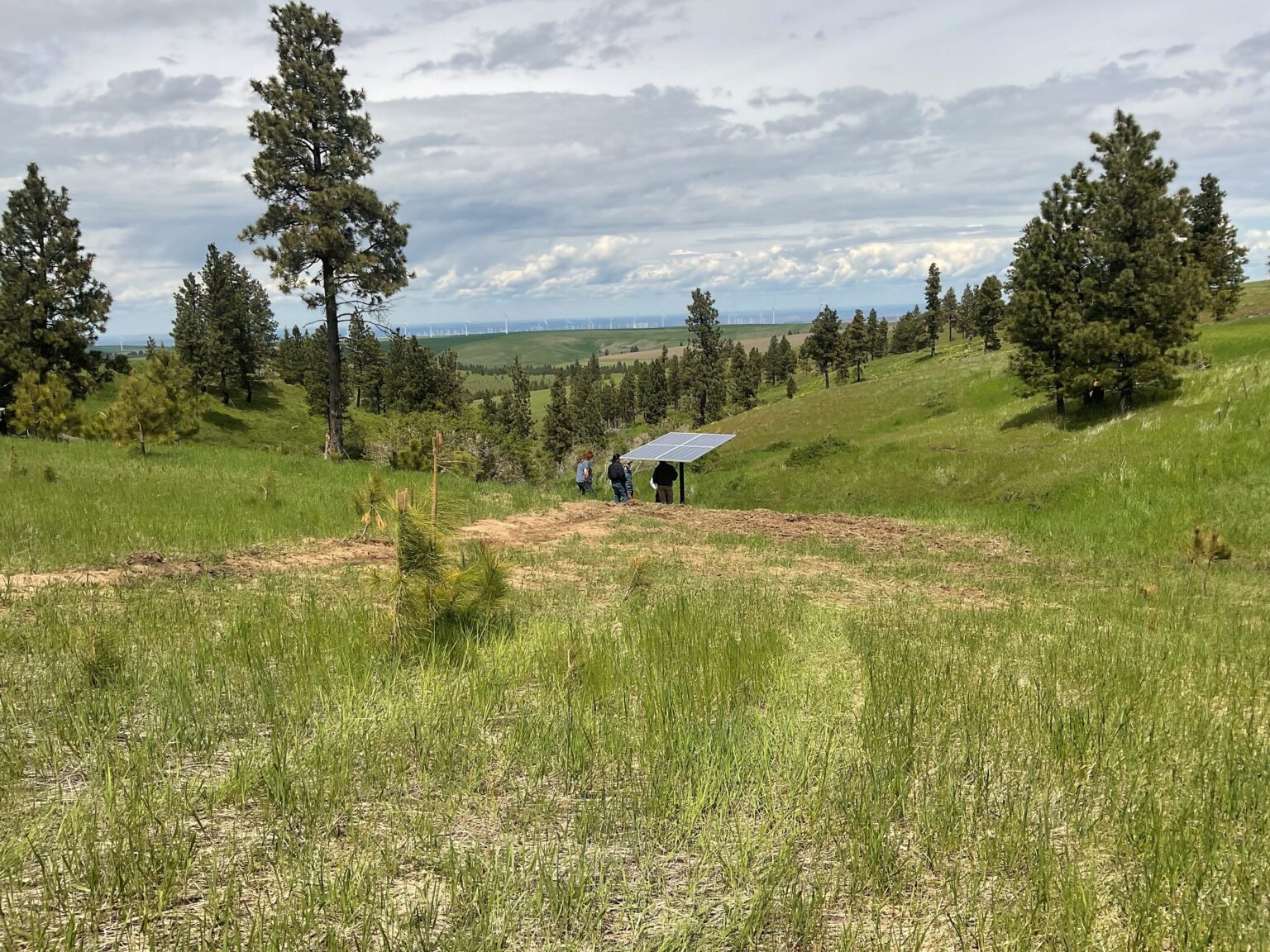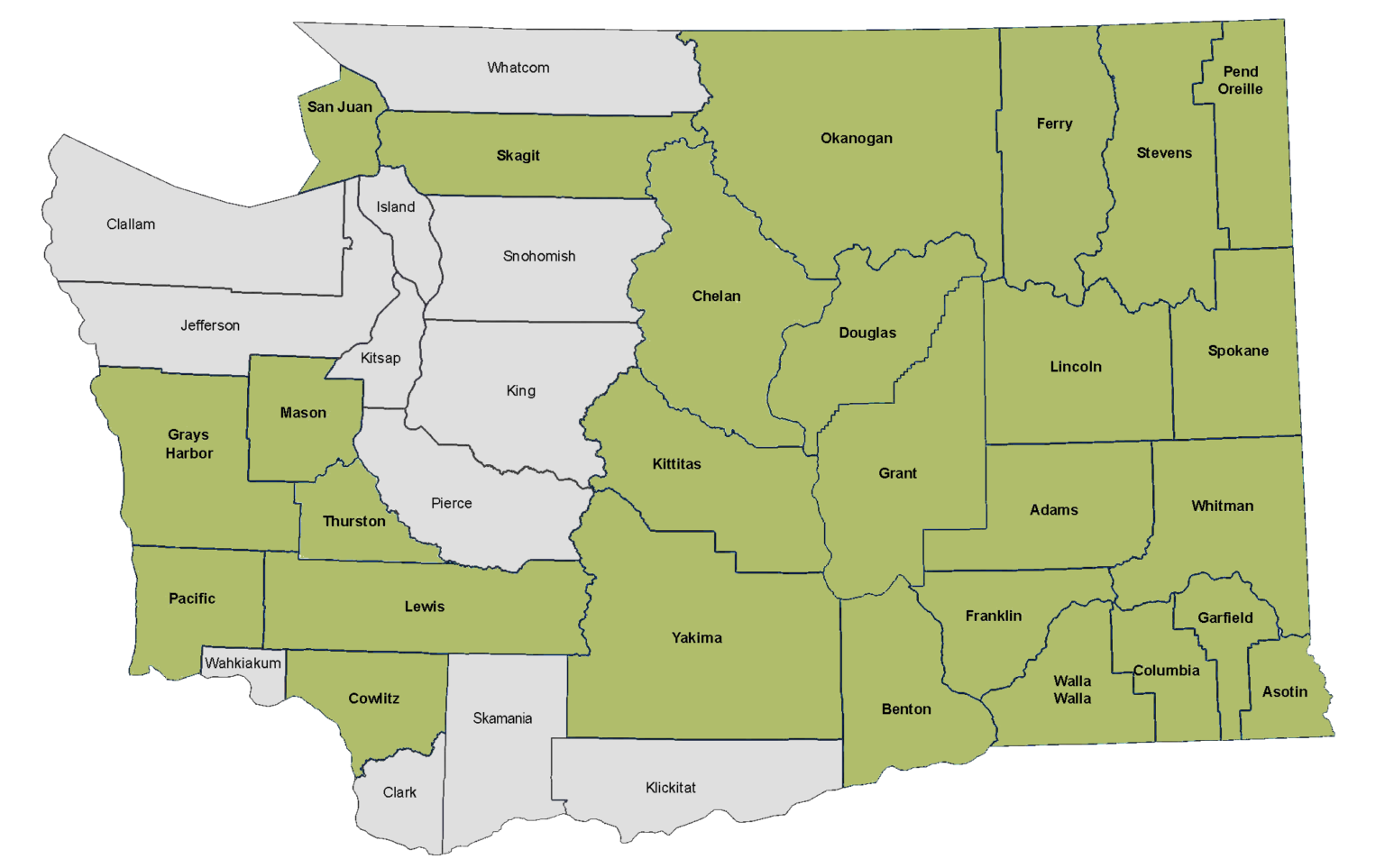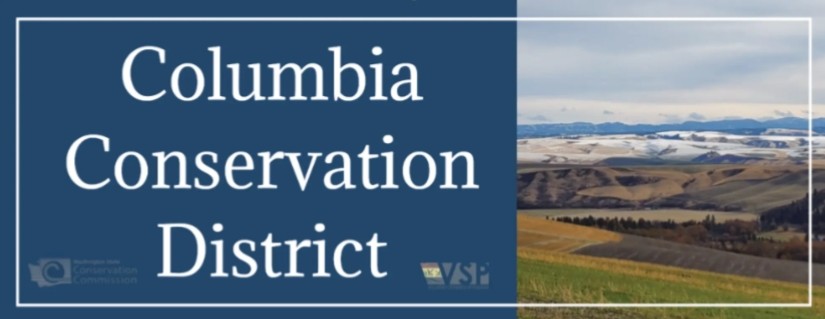Voluntary Stewardship Program
What is VSP?
- The Voluntary Stewardship Program aims to protect critical areas where they intersect with agricultural activities
- The program offers an incentive based approach to garner voluntary involvement while enhancing the long-term success and viability of agricultural production in Columbia County.
Check out Columbia Conservation District on Washington Grown for VSP! (Start time 14:19)






VSP projects require multiple steps between the initial application stage and when the project is completed. The flow chart on the left is a general representation of the steps required in most VSP project.

Frequently Asked VSP Questions
Anyone who is involved with agriculture that believes they have a resource concern (fencing, watering facility, erosion, etc)
The CCD offers a 75/25 percent cost share reimbursement program to approved projects. VSP projects are lead by landowners so that they are able to identify and implement unique efforts that will. Additionally, land-owners are able to construct their own projects if they wish, otherwise projects can be contracted. All upfront costs are the landowners responsibility, once the project has been completed and all relevant requirements are met then reimbursement checks are mailed.
No, all participation in offered programs are voluntary
Yes, VSP projects MUST be related to agriculture in some way
Example- a flood has eroded a streambank and part of a field. VSP funds could be used to re-establish the streambank. A flood that has eroded a streambank near a private residence does not qualify for VSP funds.
Download the VSP Survey and Application, fill them out and return them to the CCD
District staff can help answer questions
View the Survey & Application below
Resources
VSP SurveyVSP ApplicationVSP Cost Share PolicyWashington State Conservation Commission VSP page
*NOTE- When using the critical areas map, open the Custom Controls option (found in the top left part of the page under the button with 3 lines) and select the OpenStreetMap option to see a base map of Columbia County. There is no locate address option, so you will have to manually locate your property to the best of your ability. To determine any critical areas present, first locate your property, then toggle on and off each critical area that is also found in the Custom Controls of the map.

What are Critical Areas?
Areas inundated by surface water or groundwater for at least part of the growing season and which support vegetation adapted for life in saturated soil conditions.
Areas susceptible to erosion, sliding, and other geological events. In Columbia County, geologic hazards related to agricultural activities are primarily associated with erosion.
Includes floodplains and floodways, and often includes the low-lying areas adjacent to rivers and lakes that are prone to inundation during heavy rains and snowmelt.
Areas that have a critical recharging effect on aquifers used for drinking water, including aquifers vulnerable to contamination.
Lands and waters that provide habitat to support fish and wildlife species throughout their life stages.
